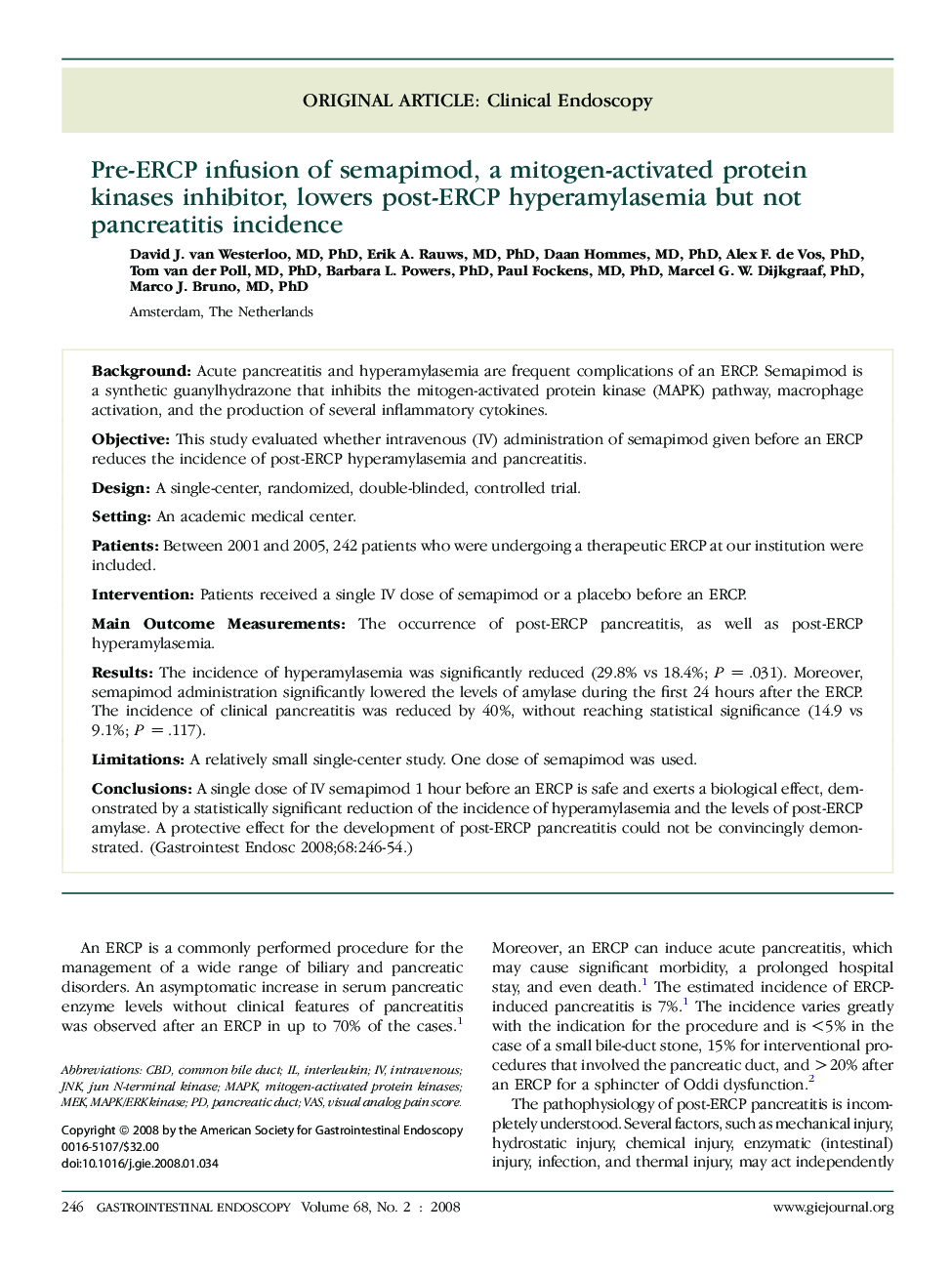| Article ID | Journal | Published Year | Pages | File Type |
|---|---|---|---|---|
| 3306448 | Gastrointestinal Endoscopy | 2008 | 9 Pages |
BackgroundAcute pancreatitis and hyperamylasemia are frequent complications of an ERCP. Semapimod is a synthetic guanylhydrazone that inhibits the mitogen-activated protein kinase (MAPK) pathway, macrophage activation, and the production of several inflammatory cytokines.ObjectiveThis study evaluated whether intravenous (IV) administration of semapimod given before an ERCP reduces the incidence of post-ERCP hyperamylasemia and pancreatitis.DesignA single-center, randomized, double-blinded, controlled trial.SettingAn academic medical center.PatientsBetween 2001 and 2005, 242 patients who were undergoing a therapeutic ERCP at our institution were included.InterventionPatients received a single IV dose of semapimod or a placebo before an ERCP.Main Outcome MeasurementsThe occurrence of post-ERCP pancreatitis, as well as post-ERCP hyperamylasemia.ResultsThe incidence of hyperamylasemia was significantly reduced (29.8% vs 18.4%; P = .031). Moreover, semapimod administration significantly lowered the levels of amylase during the first 24 hours after the ERCP. The incidence of clinical pancreatitis was reduced by 40%, without reaching statistical significance (14.9 vs 9.1%; P = .117).LimitationsA relatively small single-center study. One dose of semapimod was used.ConclusionsA single dose of IV semapimod 1 hour before an ERCP is safe and exerts a biological effect, demonstrated by a statistically significant reduction of the incidence of hyperamylasemia and the levels of post-ERCP amylase. A protective effect for the development of post-ERCP pancreatitis could not be convincingly demonstrated.
